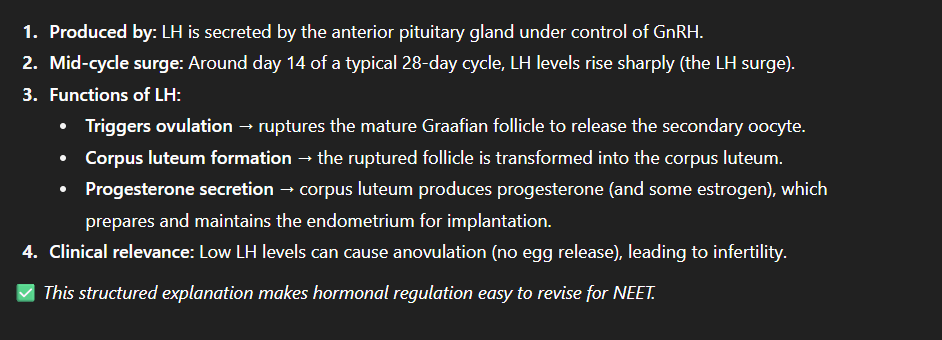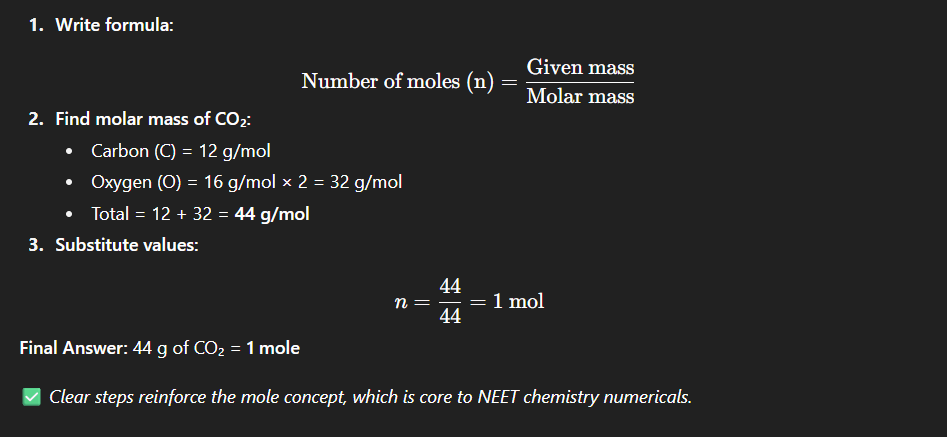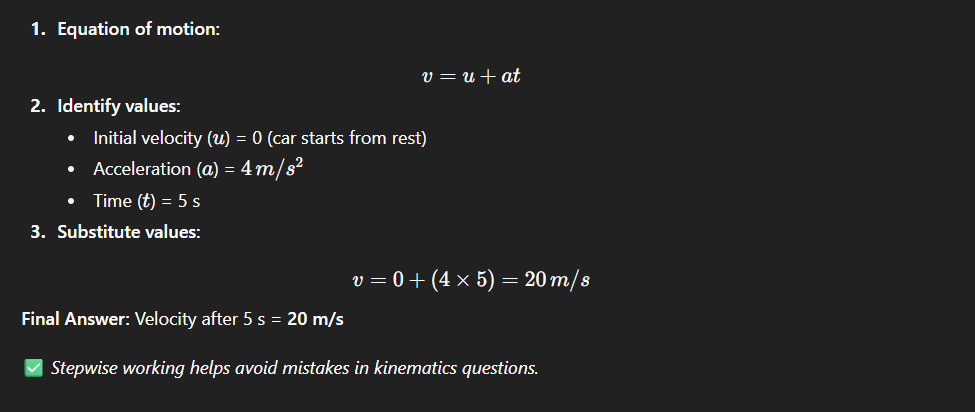How to Study For NEET UG
with ChatGPT ?
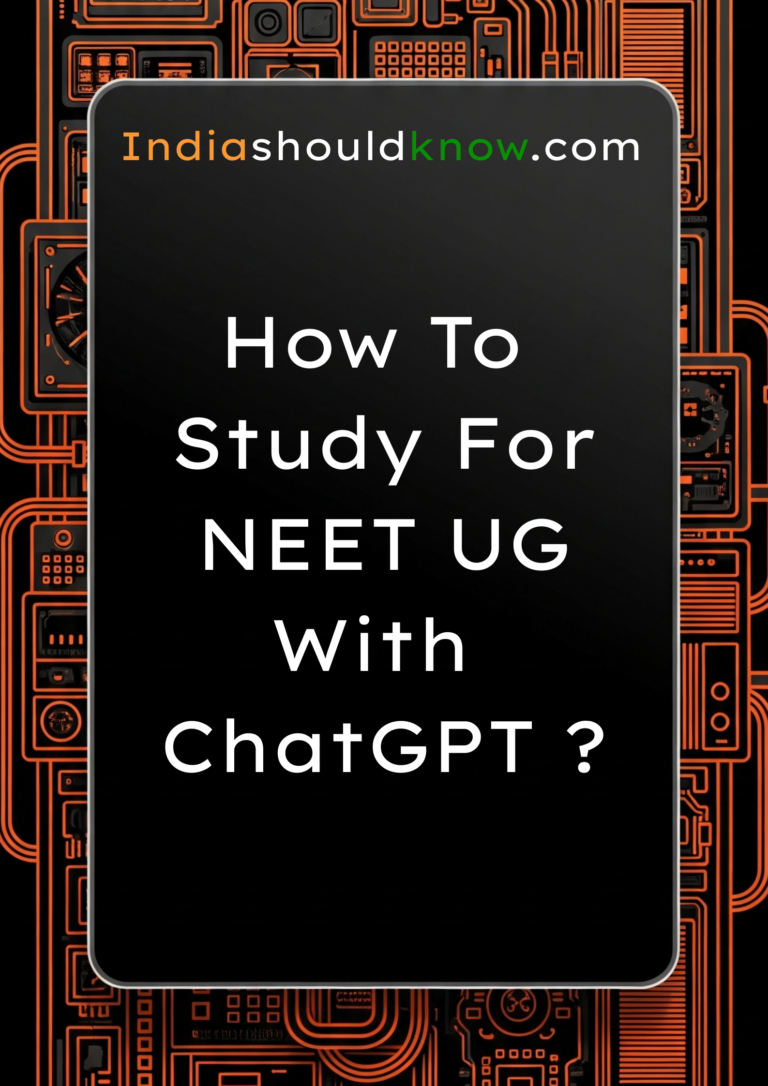
Index
- Introduction – ChatGPT’s Impact On NEET UG Prep.
- How To Use ChatGPT Input Methods For NEET UG.
- Examples About Using ChatGPT Prompts For NEET UG Subjects.
- Practice Using AI & Prompting With Google AI Chatbot.
- Conclusion
- FAQs.
- Related Articles.
Ace Your NEET UG with Your AI-Powered Study Partner: ChatGPT
Preparing for the NEET UG (National Eligibility cum Entrance Test – Undergraduate) is a demanding journey that tests students’ mastery of Physics, Chemistry, and Biology at the 10+2 level. While coaching centers and textbooks are common resources, students are increasingly turning to AI-powered study assistants like ChatGPT to turbocharge their preparation.
ChatGPT acts as a 360-degree support system — a personal tutor, concept explainer, quiz master, and doubt-clearing companion rolled into one. When used alongside standard study materials like NCERT books and practice papers, ChatGPT can help you grasp difficult topics, practice problem-solving, and stay consistent with your preparation.
Starting with ChatGPT in November 2022, AI has become a core part of my daily routine as a digital professional. I interact with tools like Google Gemini to get better at my job and explore new areas. This practical use even extended to building this website. AI is a powerful tool for achieving your goals if you have the interest to learn.
Here’s how your NEET UG prep can benefit from using ChatGPT.
How Can ChatGPT Help with NEET UG Preparation ?
- Get clear answers and in-depth explanations for questions on advanced topics in Biology, Physics, Chemistry, and any other NEET UG subject. The content is crafted by those with a strong understanding of the exam’s unique challenges.
- Easily find helpful videos, books, and other online resources from established and trusted sources to deepen your understanding of NEET UG topics.
- Access sample papers and practice material meticulously crafted to mirror the NEET UG exam’s style and difficulty, helping you build confidence through reliable preparation.
- Get assistance with NEET UG project material, find verified images, statistics, and all the material you need for a competitive edge.
Everything you need to excel at your NEET UG is right here,
Ready to Learn how to study anything in your NEET UG syllabus with the help of OpenAI's powerful tool ChatGPT ?
All You Need is
- Your notes or your text book
Before you start, you need access to ChatGPT. You can either download the app or use it on your browser:
On mobile (iOS or Android):
Download ChatGPT from the App Store
Download ChatGPT from Google PlayOn browser:
Visit ChatGPT on web
Create a free account or log in.
- Read this article to learn how
That’s All you need to make yourself a tutor ready to answer all your questions, at anytime for FREE !!!
And remember to share this article with anyone you think may need it.
How To Use ChatGPT Input Method's For NEET UG Preparation.
1. Text Prompts

Perfect for asking theory questions, solving problems, or requesting topic-wise summaries.
Example Prompt: “Explain the structure and function of the nephron in human excretion.”
2. Voice Input
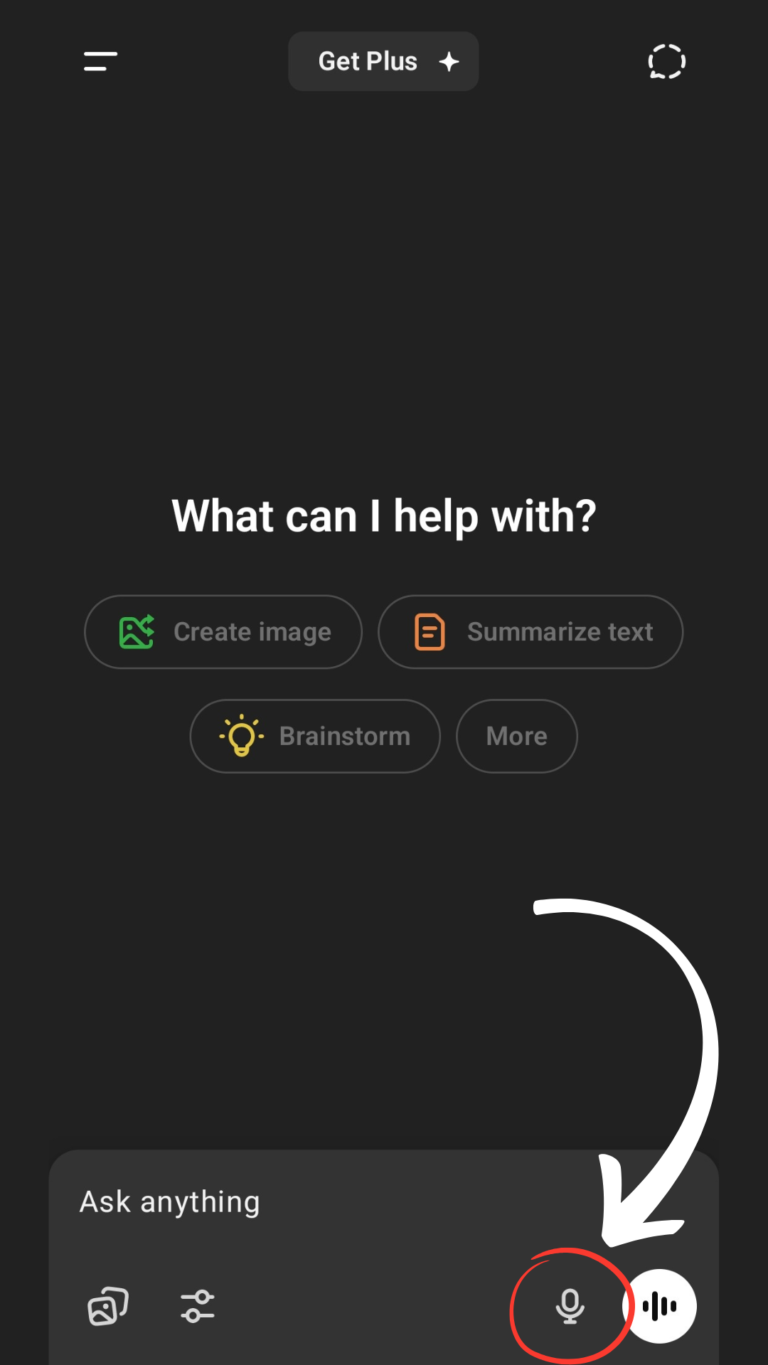
Speak your questions aloud — ideal for hands-free revision or clearing doubts while taking a break.
Example Prompt (spoken): “What are the key differences between mitosis and meiosis?”
3. Image Input
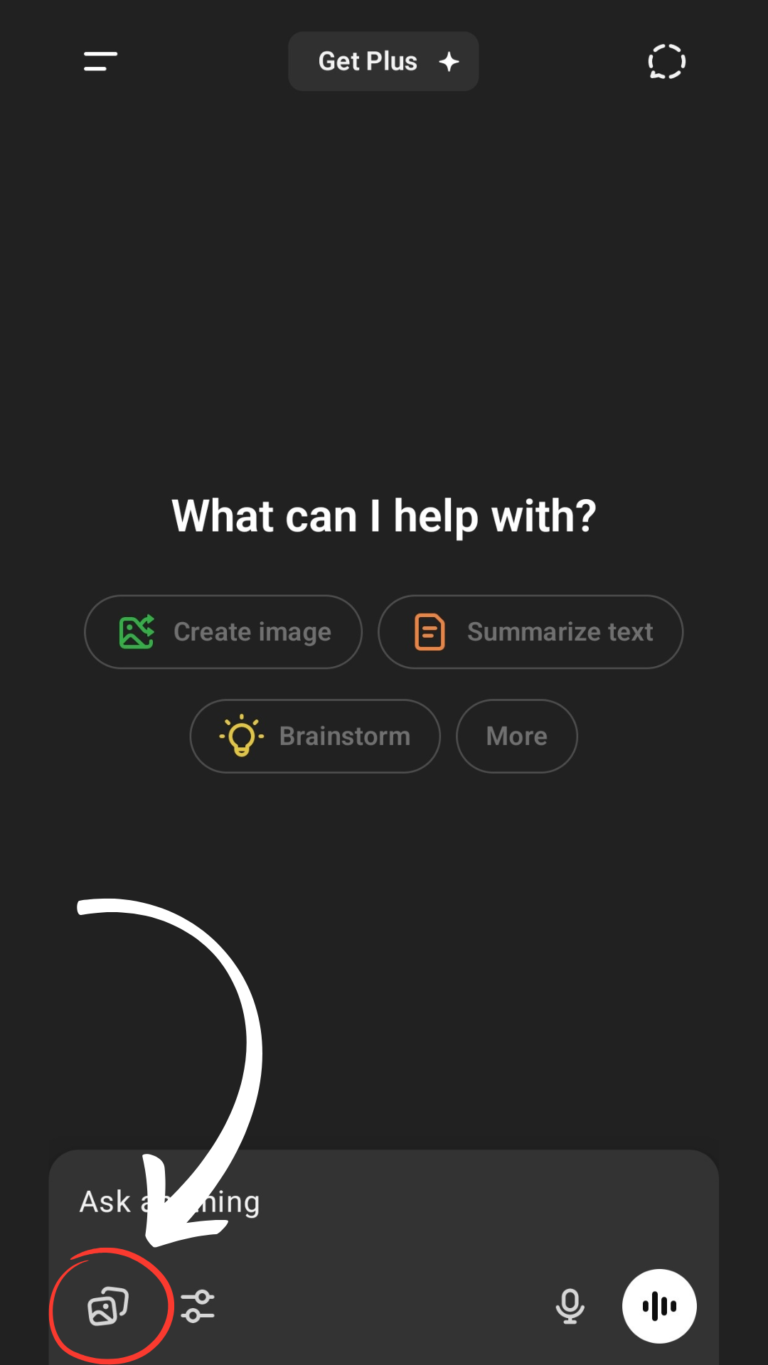
Use this to upload diagrams from NCERT or handwritten notes. Great for label-based questions and visual learners.
Example Prompt: Upload a diagram of the human heart and ask, “Label and explain the blood flow.”
Examples For Using ChatGPT For NEET UG Preparation.
Example 1: NEET UG Biology Question
What is the role of luteinizing hormone (LH) in the female reproductive cycle?
Your ChatGPT Text Prompt
“Explain the function of luteinizing hormone (LH) in the ovarian cycle, including its role in ovulation, corpus luteum formation, and hormone secretion. Add bullet points for clarity.”
How ChatGPT Will Answer (Like a Personal Tutor):
ChatGPT currently supports 20 Indian languages. Some are - Hindi, Bengali, Gujarati, Kannada, Malayalam, Marathi, Tamil, Telugu, and Urdu.
Click to enlarge.
Example 2: NEET UG Chemistry Question
Calculate the number of moles in 44 g of CO₂.
Your ChatGPT Text Prompt
“Show step-by-step mole calculation: first find molar mass of CO₂, then divide given mass by molar mass to find number of moles.”
How ChatGPT Will Answer (Like a Personal Tutor):
ChatGPT currently supports 20 Indian languages. Some are - Hindi, Bengali, Gujarati, Kannada, Malayalam, Marathi, Tamil, Telugu, and Urdu.
Click to enlarge.
Example 3: NEET UG Physics Question
A car accelerates from rest at 4𝑚/𝑠2. What is its velocity after 5 seconds?
Your ChatGPT Text Prompt
“Use first equation of motion v=u+at . Start by identifying u, a, and t, then calculate final velocity step by step.”
How ChatGPT Will Answer (Like a Personal Tutor):
ChatGPT currently supports 20 Indian languages. Some are - Hindi, Bengali, Gujarati, Kannada, Malayalam, Marathi, Tamil, Telugu, and Urdu.
Click to enlarge.
Practice and Perfect Your Prompts with Our AI Tutor (Powered By Gemini)
How It Works –
- Choose Your Course: Select the subject you want to practice.
Get Your Question: Our AI will ask you a question from the official syllabus.
Write Your Prompt: Try to get the answer by writing the best prompt you can.
Receive Instant Feedback: The AI will provide the correct answer and review your prompt, giving you tips to make it better.
AI Study Assistant
Your AI-Powered Strategy for NEET UG Success
NEET UG preparation is intense and multifaceted — but with the right tools, you can make it more strategic and personalized. ChatGPT serves as a powerful learning companion that adapts to your pace, answers your questions instantly, and explains concepts like a private tutor.
From mastering NCERT chapters to solving tricky numerical problems and clarifying biological processes, ChatGPT can help you study smarter and reduce stress.
Combine traditional methods with the power of AI, and you’ll be better equipped not just to crack NEET, but to enjoy the process of becoming a future medical professional.
Written By
Prateek Singh.
Last Updated – August, 2025
About The Author
Prateek Singh believes the best way to learn is to get your hands dirty. He went from talking to customers in sales to building the online platforms they use. IndiaShouldKnow.com is his way of sharing that practical, hands-on knowledge with you.
FAQs About AI Use.
Q: Can I trust every answer an AI tool gives me for my studies?
A: No, you should not trust every answer completely. Think of an AI as a super-smart assistant that has read most of the internet—but not every book in the library is accurate.
AI can sometimes make mistakes, misunderstand your question, or use outdated information.
It can even “hallucinate,” which means it confidently makes up an answer that sounds real but is completely false.
Rule of Thumb: Use AI answers as a great starting point, but never as the final, absolute truth. Always double-check important facts.
Q: How can I verify the information I get from an AI for my academic work?
A: Verifying information is a crucial skill. It’s like being a detective for facts. Here are four simple steps:
Check Your Course Material: Is the AI’s answer consistent with what your textbook, lecture notes, or professor says? This is your most reliable source.
Look for Reputable Sources: Ask the AI for its sources or search for the information online. Look for links from universities (.edu), government sites (.gov), respected news organizations, or published academic journals.
Cross-Reference: Ask a different AI the same question, or type your question into a standard search engine like Google. If multiple reliable sources give the same answer, it’s more likely to be correct.
Use Common Sense: If an answer seems too perfect, too strange, or too good to be true, be extra skeptical and investigate it further.
Q: What is the difference between using AI for research and using it to plagiarize?
A: This is a very important difference. It’s all about who is doing the thinking.
Using AI for Research (Good ✅):
Brainstorming topics for a paper.
Asking for a simple explanation of a complex theory.
Finding keywords to use in your library search.
Getting feedback on your grammar and sentence structure.
You are using AI as a tool to help you think and write better.
Using AI to Plagiarize (Bad ❌):
Copying and pasting an AI-generated answer directly into your assignment.
Asking the AI to write an entire essay or paragraph for you.
Slightly rephrasing an AI’s answer and submitting it as your own original thought.
You are letting the AI do the thinking and work for you.
Q: How can I use AI ethically to support my learning without violating my school's academic honesty policy?
A: Using AI ethically means using it to learn, not to cheat. Here’s how:
Know the Rules: First and foremost, read your school’s or professor’s policy on using AI tools. This is the most important step.
Be the Author: The final work you submit must be yours. Your ideas, your structure, and your arguments. Use AI as a guide, not the writer.
Do the Heavy Lifting: Use AI to understand a topic, but then close the chat and write your summary or solve the problem yourself to make sure you have actually learned it.
Be Transparent: If you used an AI in a significant way (like for brainstorming), ask your professor if you should mention it. Honesty is always the best policy.
Q: Can an AI's answer be biased? How can I detect this in its responses?
A: Yes, an AI’s answer can definitely be biased. Since AI learns from the vast amount of text on the internet written by humans, it can pick up and repeat human biases.
Here’s how to spot potential bias:
Look for Opinions: Does the answer present a strong opinion as a fact?
Check for One-Sidedness: On a topic with multiple viewpoints (like politics or economics), does the AI only show one side of the argument?
Watch for Stereotypes: Does the answer use generalizations about groups of people based on their race, gender, nationality, or other characteristics?
To avoid being misled by bias, always try to get information from multiple, varied sources.
Q: Is it safe to upload my personal notes, research papers, or assignments to an AI tool?
A: It is best to be very careful. You should not consider your conversations with most public AI tools to be private.
Many AI companies use your conversations to train their systems, which means employees or contractors might read them.
There is always a risk of data breaches or leaks.
A Simple Safety Rule: Do not upload or paste any sensitive information that you would not want a stranger to see. This includes:
Personal identification details.
Confidential research or unpublished papers.
Your school assignments before you submit them.
Any financial or private data.
Related Articles
Sign Up for Our Newsletter To Learn More About the Latest In AI And Learn How To Use It.
Unlock your learning potential and stay ahead in the age of AI! Join the IndiaShouldKnow.com newsletter to discover how to seamlessly integrate AI into your studies for school, entrance exams, college courses, for your Career and Life. Plus, get the latest insights on cutting-edge AI tools that can empower your career and enrich your life. Subscribe now for monthly updates.

